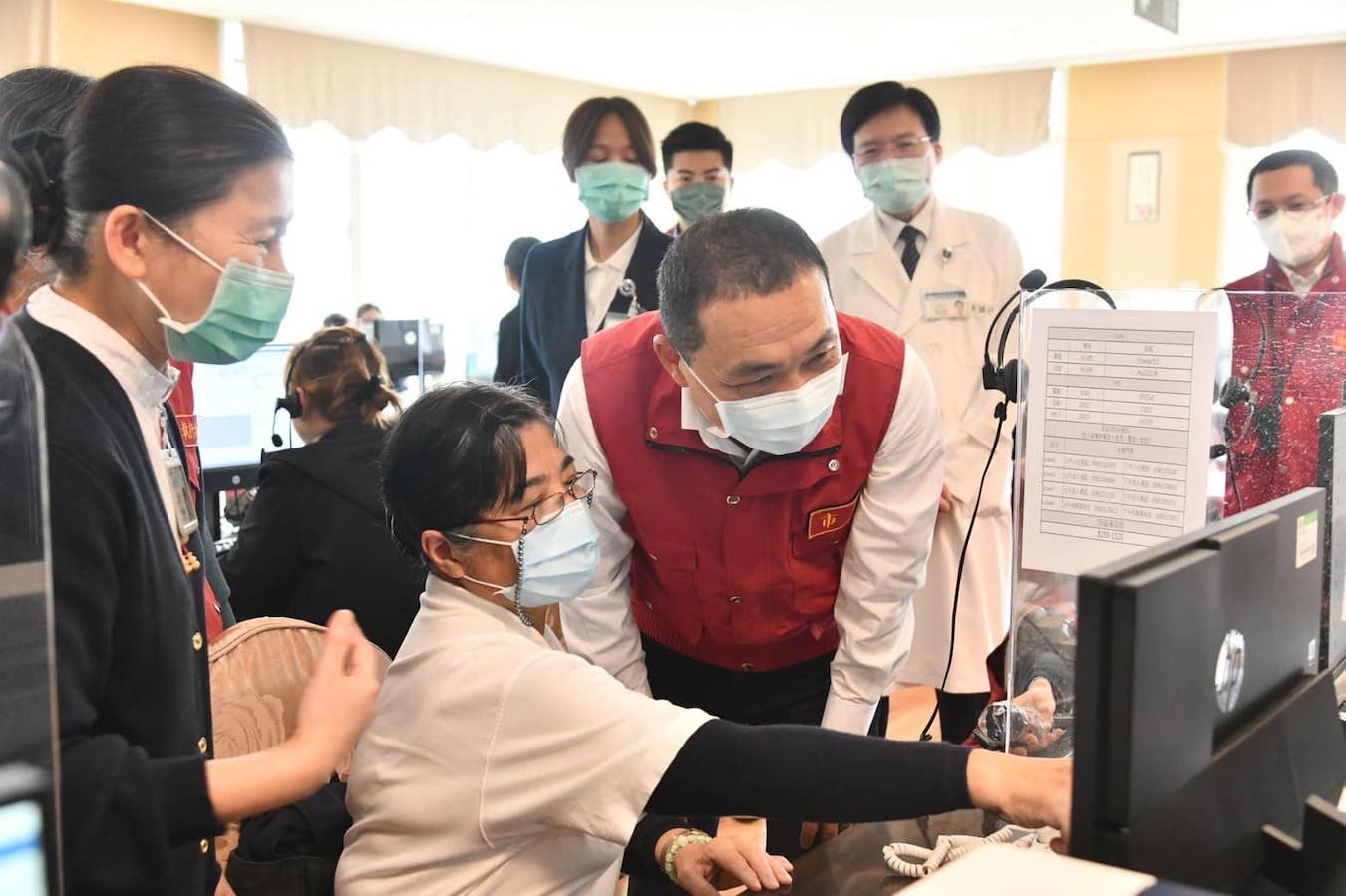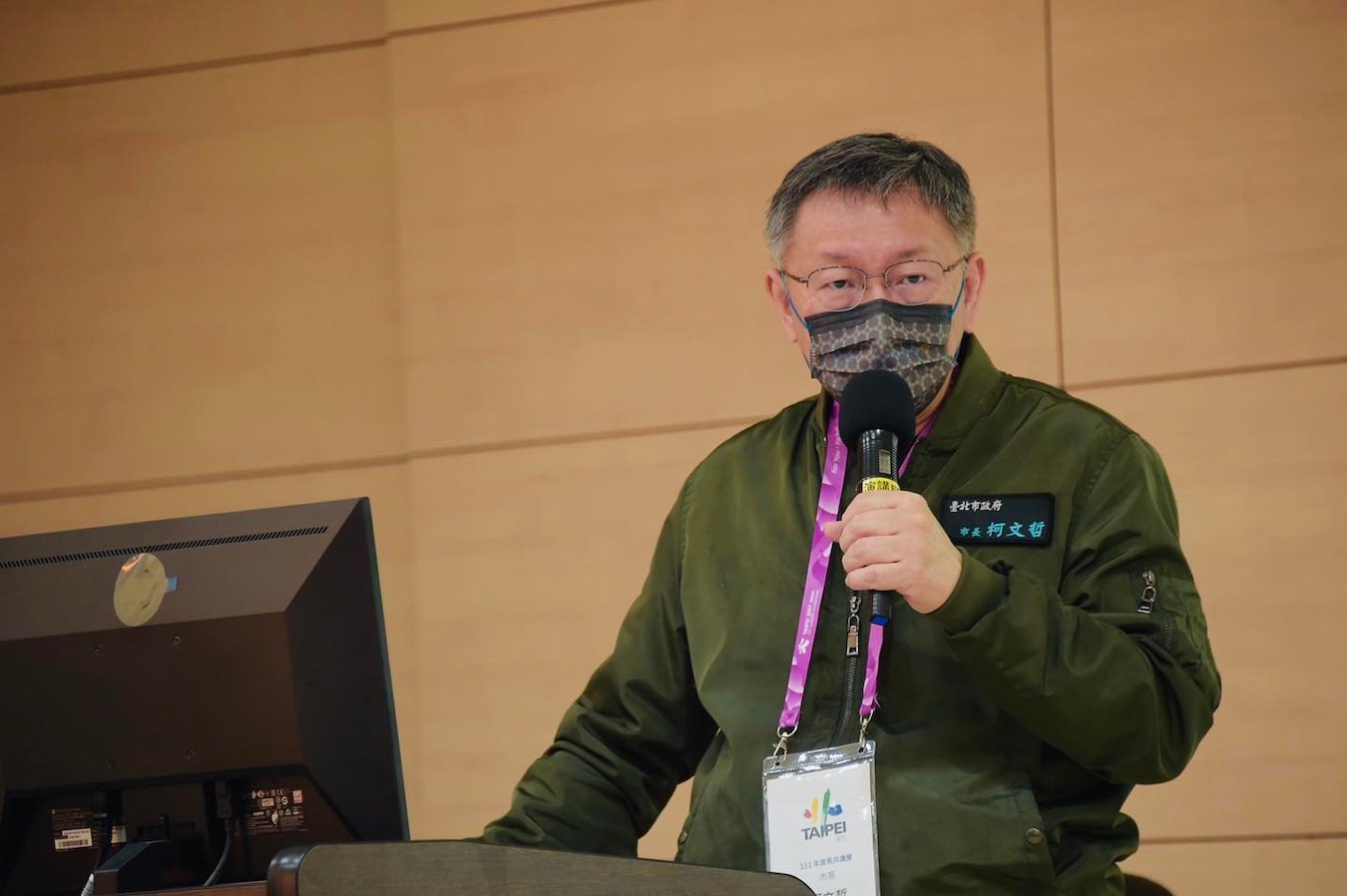by Brian Hioe
語言:
English
Photo Credit: Trcheng/WikiCommons/CC
CREMATIONS FOR individuals that recently died of COVID-19 has become the latest issue that is contested between pan-Blue local governments and the central government.
In particular, the issue revolves around current policy regulations from the Central Epidemic Command Center (CECC) which coordinates Taiwan’s response to COVID-19. The CECC currently calls for fast cremations of individuals that died from COVID-19, to prevent the spread of COVID-19, though this has sometimes been interpreted as cremations being required within 24 hours.
For his part, Minister of Health and Welfare Chen Shih-chung has stated that the CECC does not mandate cremations within 24 hours, but urges that they take place quickly. CECC spokespersons have also emphasized that measures may be adjusted based on the circumstance.
 New Taipei mayor Hou You-yi. Photo credit: Hou You-yi/Facebook
New Taipei mayor Hou You-yi. Photo credit: Hou You-yi/Facebook
What the CECC does require, however, is that there is notification of deaths from COVID-19 within 24 hours. The confusion may originate from the new phrasing of regulations that already were in place, but there was no change in policies on the CECC after June 1st, when controversy regarding the issue began.
Part of the reason why the notion of cremations within 24 hours has caused consternation is due to the fact that this may not allow family members and friends to say goodbye to recently deceased individuals, and that because cremation may take place before names can be engraved on memorial urns. The CECC has also been pushed on the issue of if body bags for deceased individuals could be transparent, so as to allow family members to see the deceased.
To this extent, Taiwan has had 2.6 million cases of COVID-19 this year, and so COVID-19 is already widespread in Taiwan, raising questions about whether this treatment of dead bodies is necessary. Within public discourse, it has been raised that New Zealand, Australia, Canada, and Singapore do not require the quick cremation or burial of the bodies of individuals with COVID-19, and that the World Health Organization does not advocate this either.
Taipei mayor Ko Wen-je has been particularly critical of the central government on the issue. Ko’s emphasis on the issue seems to be defensive, seeing as Ko was asked about the issue by the media, and was not aware of any requirement for 24-hour cremations. Subsequently, Ko has hit back at the central government for what he frames as its ambiguity on the issue, arguing that if he was confused about the policy, others would have been as well.
New Taipei mayor Hou You-yi has criticized the central government for failing to coordinate with local governments on the matter, stating that cremations are usually carried out within 24 hours, but stating that this results in much heartbreak for family members of the deceased. Hou claimed to have visited cremation facilities to observe this in the past.
 Taipei mayor Ko Wen-je. Photo credit: Ko Wen-je/Facebook
Taipei mayor Ko Wen-je. Photo credit: Ko Wen-je/Facebook
Either way, clashes between the central government and pan-Blue local governments about the issue of cremations follows a familiar pattern seen throughout the COVID-19 outbreak to date. Namely, pan-Blue local governments have sought to attack the CECC on a number of issues, so as to depict the CECC as failing to do enough to prevent the spread of COVID-19, or that the CECC is unsympathetic to victims of tragedies involving COVID-19. This has particularly been the case with Ko and Hou, whose cities were most affected by the pandemic to date.
For example, in earlier stages of the outbreak, Ko and Hou sought to attack the CECC as failing to escalate the COVID alert level. At other points, Ko and Hou criticized the CECC as being too quick to decrease the alert level. Likewise, Ko and Hou have attacked the CECC over shortages of COVID vaccines or rapid tests, sometimes alleging that the CECC has sought to undermine greater Taipei’s response to COVID-19 by refusing to distribute enough vaccines to the Taipei and New Taipei city governments.
Pan-Blue attacks on the CECC may grow increasingly heated as elections approach, with the KMT having sought to depict the Tsai administration’s response to COVID-19 as failed, in the hopes that this will lead voters to turn to it as an alternative. Moreover, given speculation that Minister of Health and Welfare Chen Shih-chung may be the DPP’s Taipei mayoral candidate, it is possible that the pan-Blue camp is hoping to tar Chen’s reputation, to remove a potential political competitor for Taipei mayorship.

